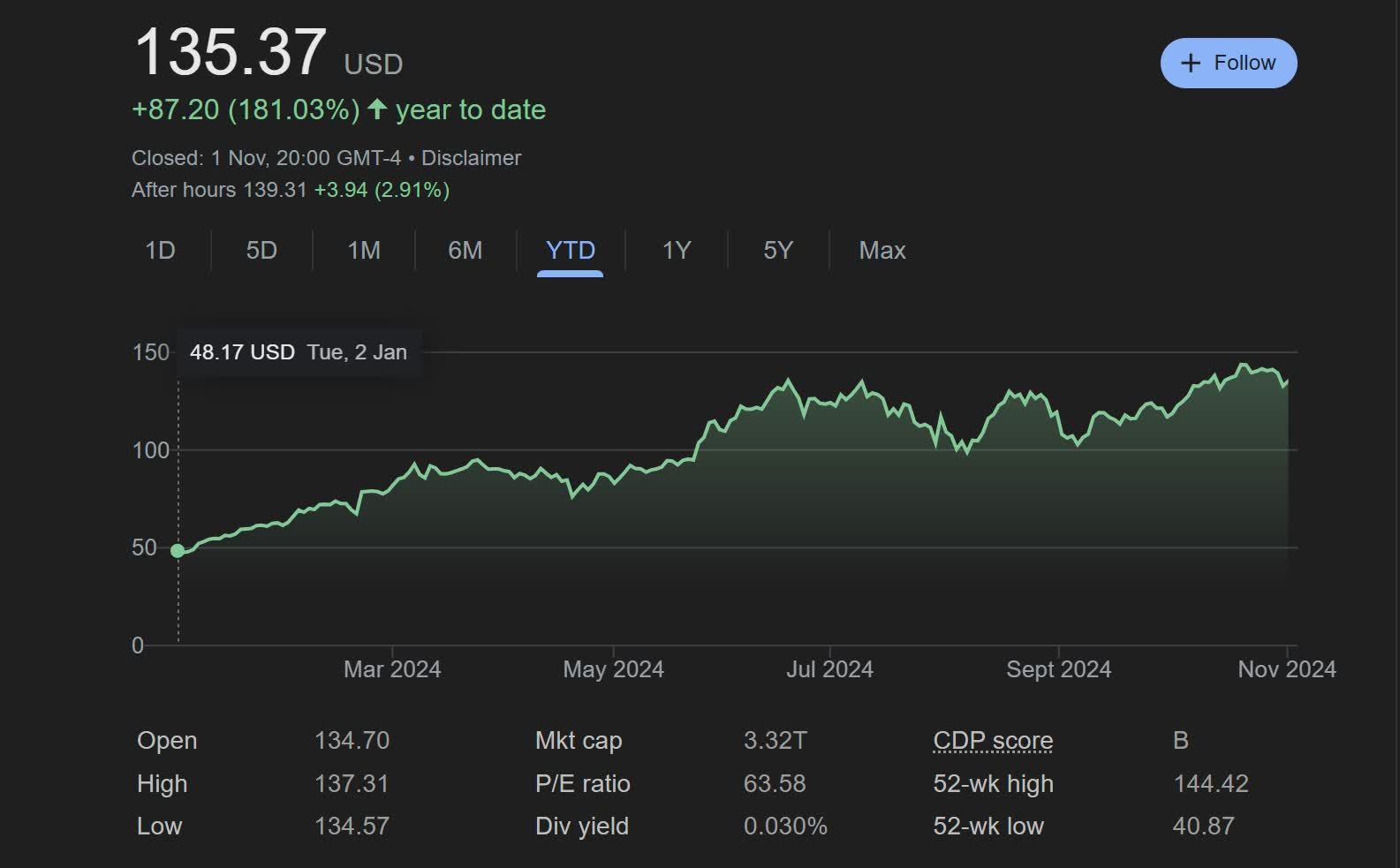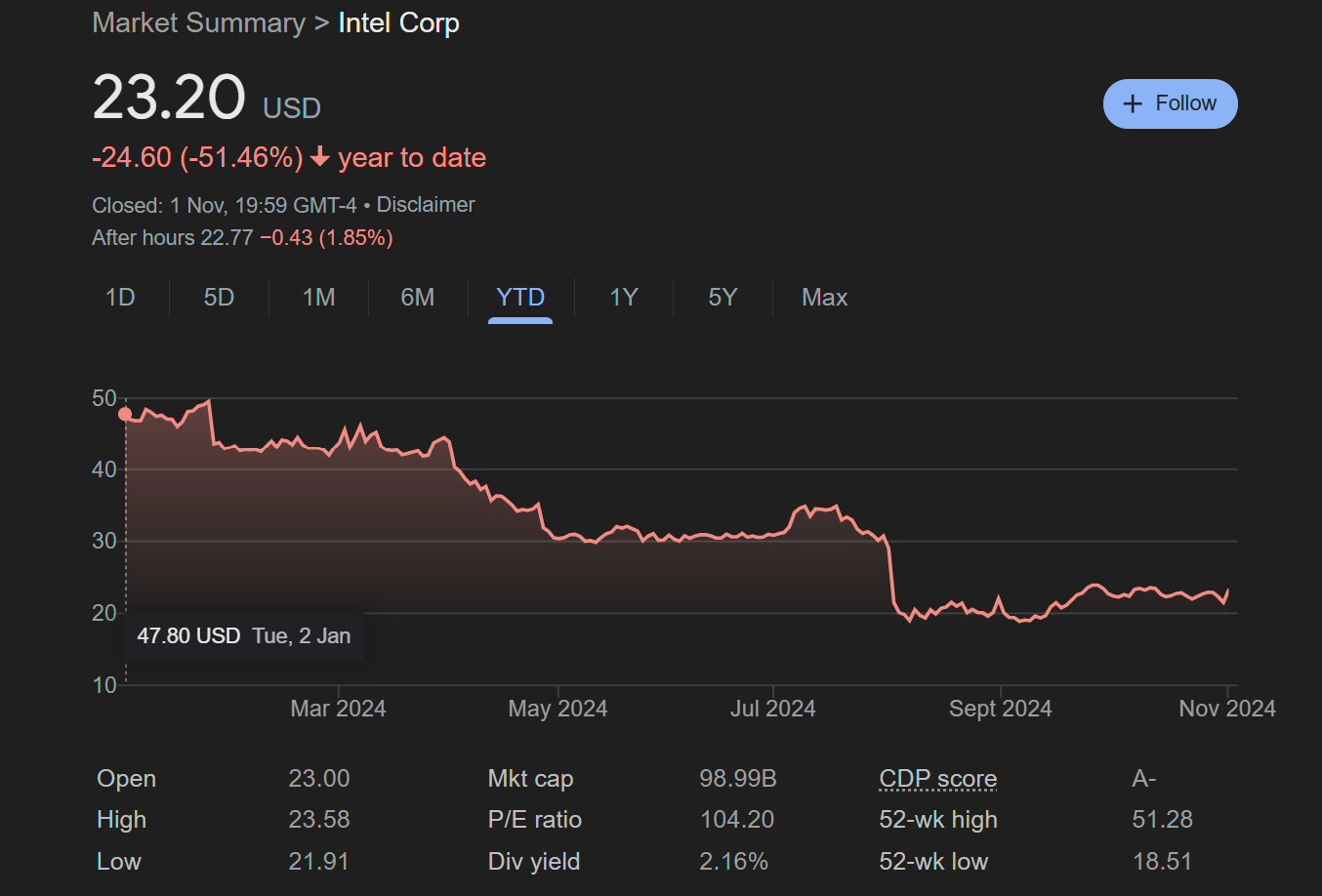Nvidia replaces Intel in Dow Jones index, marking shift in tech landscape

Serving tech enthusiasts for over 25 years.
TechSpot means tech analysis and advice you can trust.
Editor’s take: This reshuffling of the Dow Jones Industrial Average is a stark reminder of the rapid pace of change in the tech industry. As AI continues to reshape various sectors of the economy, companies that can innovate and adapt to these new technologies will thrive, while those that lag may face significant challenges.
Nvidia will replace Intel in the Dow Jones Industrial Average. This change, scheduled to take effect on November 8, 2024, highlights the growing importance of artificial intelligence in the US economy and the evolving dynamics of the tech sector.
Nvidia’s meteoric rise in the AI era has propelled it to become one of the most valuable companies globally, with a market capitalization of approximately $3.32 trillion. While it briefly held the top position, it currently ranks among the top three most valuable companies, alongside Apple and Microsoft, with the exact ranking fluctuating based on market conditions.
Nvidia’s stock has kept booming this past year
The company’s stock has surged by over 170 percent in 2024 alone, following a 240 percent increase in the previous year. This remarkable growth is largely attributed to the soaring demand for Nvidia’s graphics processing units.
Major tech giants such as Microsoft, Meta, Google, and Amazon have been purchasing Nvidia’s GPUs in large quantities to power their AI initiatives. As a result, Nvidia has seen its revenue more than double in the past five quarters, with some quarters experiencing a tripling of revenue.
In stark contrast, Intel, a long-standing titan in the semiconductor industry, has faced significant challenges. The company, which has been part of the Dow since 1999, has struggled to maintain its market position in the face of increasing competition and manufacturing difficulties. Intel’s shares have plummeted by more than 50 percent this year, partly reflecting its struggles to adapt to the AI-driven landscape.
A pivotal point came when the company reported a $1.6 billion loss in the second quarter of 2024. This poor showing led to a dramatic 30 percent overnight drop in Intel’s stock price in August. In response to these challenges, Intel has announced significant cost-cutting measures, including a reduction of 16,500 employees.
With Nvidia set to join the Dow Jones Industrial Average, there will be four trillion-dollar tech companies in the index: Apple, Microsoft, Amazon, and Nvidia. For their part, Alphabet and Meta remain outside the index.
A strategic 10-for-1 stock split in May was instrumental in Nvidia’s journey to the Dow. This split reduced the company’s share price without affecting its market capitalization, positioning it more favorably for inclusion in the price-weighted index.
The Dow Jones Industrial Average, a price-weighted index of 30 prominent companies, is often viewed as a barometer of the US stock market and the broader economy. As Nvidia steps into its new role in the Dow, it not only signals a changing of the guard in the semiconductor sector but also a broader shift towards AI-driven technologies in the global economy.




